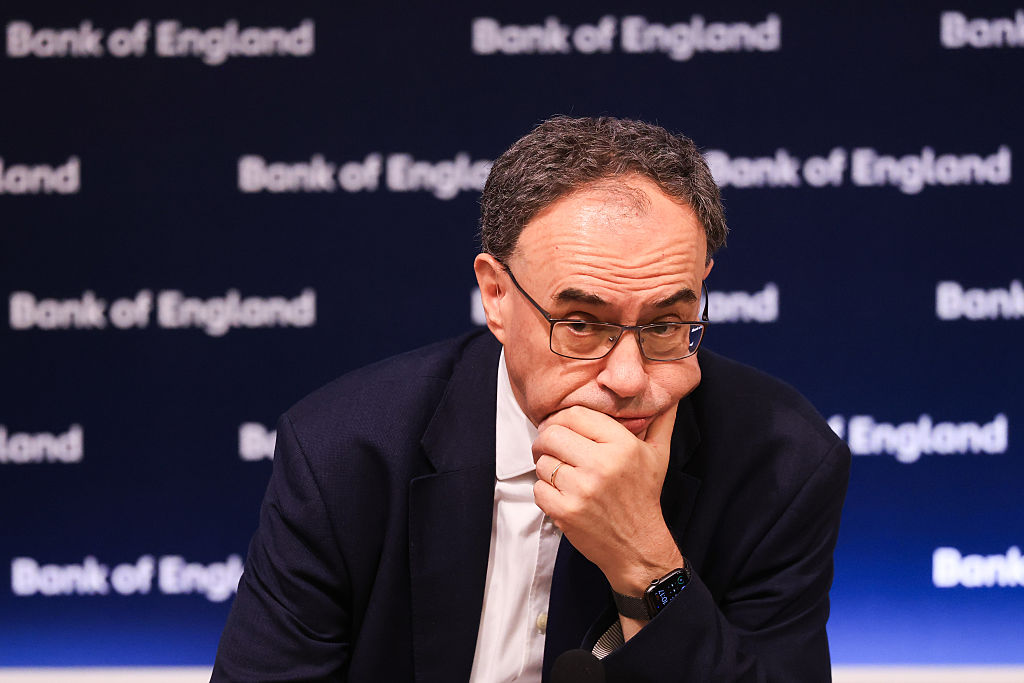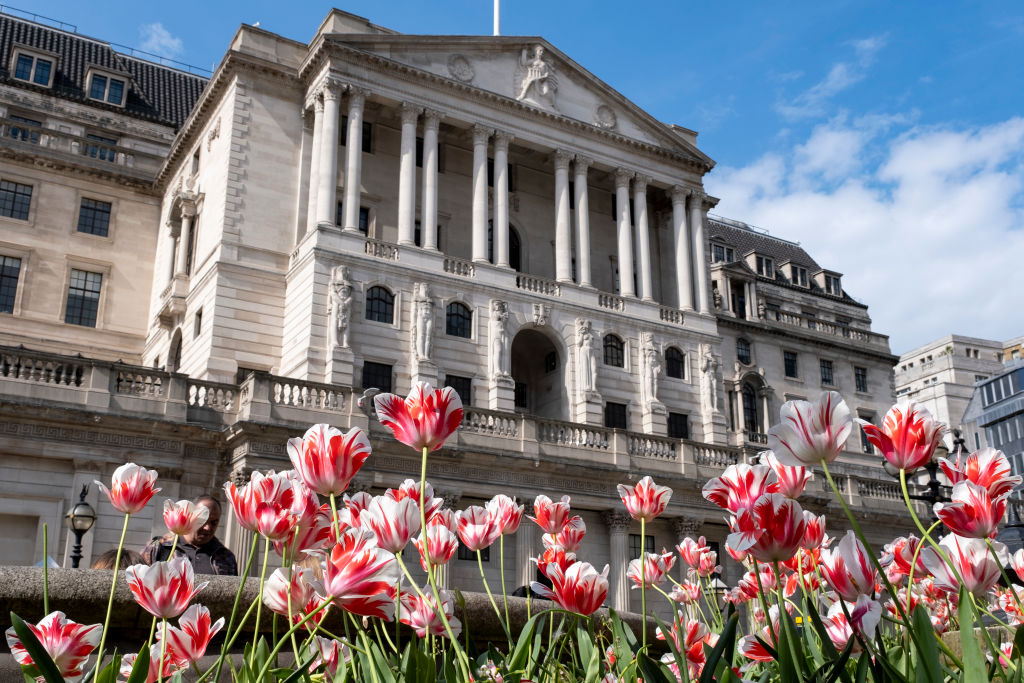When is the next Bank of England base rate meeting?
The Bank of England held interest rates at 3.75% in February 2026. When is the next Monetary Policy Committee meeting and will interest rates fall further this year?


Get the latest financial news, insights and expert analysis from our award-winning MoneyWeek team, to help you understand what really matters when it comes to your finances.
You are now subscribed
Your newsletter sign-up was successful
Want to add more newsletters?
The Bank of England meets eight times a year to set the base rate, which is the core interest rate for the UK.
The base rate (also called the bank rate) is the rate of interest that the Bank of England charges commercial banks, building societies, and other financial institutions that hold money with, or borrow from, the central bank.
Changes to the base rate therefore have a knock-on effect on mortgages, savings and loans to consumers.
MoneyWeek
Subscribe to MoneyWeek today and get your first six magazine issues absolutely FREE

Sign up to Money Morning
Don't miss the latest investment and personal finances news, market analysis, plus money-saving tips with our free twice-daily newsletter
Don't miss the latest investment and personal finances news, market analysis, plus money-saving tips with our free twice-daily newsletter
If the base rate is lowered, you may find your mortgage rate is also cut, or may find your savings account is paying less in interest. The reverse is true if the bank hikes rates.
The base rate is usually adjusted as a way to control inflation in the economy. The central bank typically increases rates when inflation is too high, and eases them when price growth returns closer to the bank’s 2% target.
The Bank of England has been gradually cutting interest rates since the summer of 2024, and most forecasters expect them to continue cutting in 2026, albeit at a slower pace.
The bank’s Monetary Policy Committee (MPC), which sets interest rates, is due to announce its next decision on 19 March.
The MPC last met on 5 February, when it voted to hold interest rates at 3.75%.
Five members voted to hold interest rates and four members voted to cut by 25 basis points.
Bank of England interest rate announcement dates
The MPC meets roughly every six weeks to set the base rate, though extraordinary meetings can be called when needed.
The meetings usually happen the day before the interest rate announcement.
Here is the full list of dates when the MPC interest rate decision will be announced by the Bank of England in 2026:
- 19 March
- 30 April
- 18 June
- 30 July
- 17 September
- 5 November
- 17 December
What is the Bank of England’s Monetary Policy Committee?
The Bank of England’s Monetary Policy Committee is the body that is responsible for setting the bank rate.
The committee is made up of nine members, and is chaired by BoE governor Andrew Bailey.
Five of the members are internal staff, while the remaining four are external experts appointed to make sure the MPC benefits from expertise outside the Bank of England.
During each meeting, the committee votes on whether to cut, hold or raise interest rates.
Bank of England base rate forecast
The Bank of England has a mandate to keep inflation at the 2% target, which economic consensus says constitutes a healthy level of inflation in the economy.
The central bank will try to achieve this through various monetary policy levers, though the main one is changing the bank rate.
Inflation rose in the 12 months to December 2025, going up 0.2 percentage points to 3.4%, the latest data from the Office for National Statistics (ONS) shows. It was the first time inflation rose since July 2025.
Most forecasters believe that rising inflation in December is a blip, with price growth expected to ease throughout 2026. The central bank estimates inflation to reach the 2% target by early 2027.
Falling inflation would help support the case for further interest rate cuts over the course of 2026.
The MPC continued to cut rates even when inflation was rising, so slowing price growth may bolster the case to lower interest rates this year.
That is further emphasised by the amount of division within the MPC over February’s decision, as the decision to hold instead of cut rates was passed by just one vote, indicating more members of the committee are making dovish calls.
Laith Khalaf, head of investment analysis at AJ Bell, said: “In short, it looks like a rate cut is now a question of when, not if.”
Markets are currently pricing in at least one rate cut in the first half of 2026, though they are less certain whether another cut will be made in the second half of the year.
Economists at Deutsche Bank are a little more bullish on falling rates, expecting two rate cuts in 2026 – one in March and one in June.
Get the latest financial news, insights and expert analysis from our award-winning MoneyWeek team, to help you understand what really matters when it comes to your finances.

Daniel is a financial journalist at MoneyWeek, writing about personal finance, economics, property, politics, and investing.
He covers savings, political news and enjoys translating economic data into simple English, and explaining what it means for your wallet.
Daniel joined MoneyWeek in January 2025. He previously worked at The Economist in their Audience team and read history at Emmanuel College, Cambridge, specialising in the history of political thought.
In his free time, he likes reading, walking around Hampstead Heath, and cooking overambitious meals.
-
 What the government’s baby boomer retirement data says about the future of pensions
What the government’s baby boomer retirement data says about the future of pensionsA study of the retirement routes of people born in 1958 paints a worrying picture for people’s pension savings
-
 An experienced investor’s end of tax year checklist
An experienced investor’s end of tax year checklistThe clock is ticking down before the end of the 2025/26 tax year, when any tax-free savings and investment allowances are lost. For experienced investors, though, the deadline for some tax-saving schemes is even earlier.
-
 Why Scotland's proposed government bonds are a terrible investment
Why Scotland's proposed government bonds are a terrible investmentOpinion Politicians in Scotland pushing for “kilts” think it will strengthen the case for independence and boost financial credibility. It's more likely to backfire
-
 How have central banks evolved in the last century – and are they still fit for purpose?
How have central banks evolved in the last century – and are they still fit for purpose?The rise to power and dominance of the central banks has been a key theme in MoneyWeek in its 25 years. Has their rule been benign?
-
 UK to have highest inflation among advanced economies this year and next, says IMF
UK to have highest inflation among advanced economies this year and next, says IMFThe International Monetary Fund (IMF) says it expects inflation to remain high in the UK, while lowering economic growth forecasts for 2026.
-
 Is Britain heading for a big debt crisis?
Is Britain heading for a big debt crisis?Opinion Things are not yet as bad as some reports have claimed. But they sure aren’t rosy either, says Julian Jessop
-
 'Britain is on the road to nowhere under Labour'
'Britain is on the road to nowhere under Labour'Opinion Britain's economy will shake off its torpor and grow robustly, but not under Keir Starmer's leadership, says Max King
-
 'Governments are launching an assault on the independence of central banks'
'Governments are launching an assault on the independence of central banks'Opinion Say goodbye to the era of central bank orthodoxy and hello to the new era of central bank dependency, says Jeremy McKeown
-
 Why investors can no longer trust traditional statistical indicators
Why investors can no longer trust traditional statistical indicatorsOpinion The statistical indicators and data investors have relied on for decades are no longer fit for purpose. It's time to move on, says Helen Thomas
-
 Live: Bank of England holds UK interest rates at 4.5%
Live: Bank of England holds UK interest rates at 4.5%The Bank of England voted to hold UK interest rates at their current level of 4.5% in March, as widely anticipated, after inflation rose to 3% in January